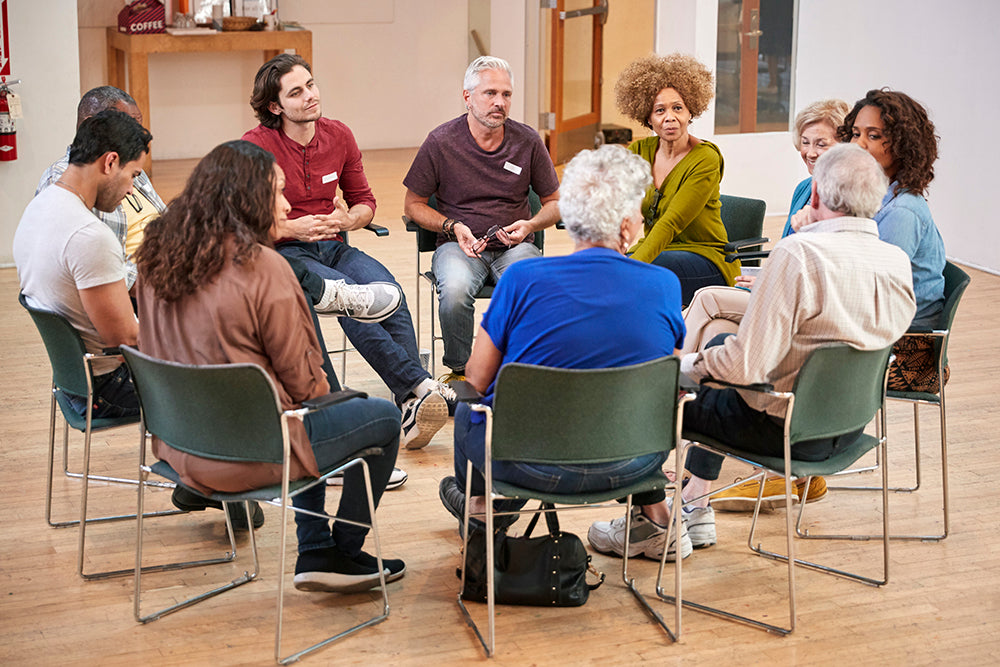You have no items in your shopping basket.
Safeguarding adults (social care) eLearning courses
Safeguarding adults in social care: Ensuring safety and dignity
Rose Mabiza
17-04-2024
Safeguarding Adults is a critical aspect of social care in the UK, ensuring the protection and well-being of vulnerable individuals. With an ageing population and increasing awareness of adult abuse and neglect, the importance of effective safeguarding practices cannot be overstated. In this blog, Rose Mabiza explores the significance of safeguarding adults, relevant legislation, best practice guidelines, and practical recommendations for professionals in social care settings.
Key facts and statistics
- According to the Office for National Statistics, there were an estimated 58,810 adults at risk of abuse in England in 2020-2021.
- The National Society for the Prevention of Cruelty to Adults (NSPCA) reports that around 1 in 6 adults over the age of 60 experience some form of abuse.
- Research by Action on Elder Abuse suggests that only a fraction of abuse cases are reported, highlighting the need for improved safeguarding measures.

Image by Rawpixel via Envato Elements

Image by Pressmaster via Envato Elements
Key definitions
- Safeguarding adults - The process of protecting vulnerable adults from abuse, neglect, and exploitation, ensuring their safety, dignity, and well-being are preserved.
- Vulnerable adult - An individual aged 18 or over who is or may need social care services due to age, illness, disability, or other factors and who may be unable to protect themselves from harm or exploitation.
Relevant legislation, regulations, and best practices
- Vulnerable adult - An individual aged 18 or over who is or may need social care services due to age, illness, disability, or other factors and who may be unable to protect themselves from harm or exploitation.
- Mental Capacity Act 2005 - Provides a legal framework for decision-making on behalf of adults who lack capacity, ensuring their best interests are upheld.
- The Human Rights Act of 1998 protects - The fundamental rights and freedoms of individuals, including the right to life, freedom from torture, and respect for privacy.
- Social Care Institute for Excellence (SCIE) - Offers best practice guidance and resources for safeguarding adults and promoting effective strategies and interventions.

Image by monkeybusiness via Envato Elements

Image by monkeybusiness via Envato Elements
Ensuring safety - Safeguarding adults in social care settings
Understanding the importance of safeguarding adults
Safeguarding adults is essential for promoting vulnerable individuals' autonomy, dignity, and quality of life. It involves preventing abuse, recognising signs of harm, and taking appropriate action to protect those at risk. Effective safeguarding practices ensure adults' safety in social care settings, uphold their rights and promote their well-being.
Legislation and regulatory framework
The Care Act 2014 sets out clear responsibilities for local authorities in safeguarding adults, including conducting safeguarding inquiries, providing support, and cooperating with relevant agencies. The Mental Capacity Act 2005 guides decision-making for adults lacking capacity, emphasising the importance of respecting their rights and best interests. Compliance with these legislative frameworks is essential for organisations to meet their legal obligations and safeguard adults effectively.
Best practice guidelines
Adopting best practice guidelines from organisations such as the SCIE is crucial for implementing effective safeguarding measures. These guidelines offer evidence-based recommendations for identifying risks, conducting assessments, and developing safeguarding policies and procedures. By following best practice guidance, social care professionals can ensure they use the most effective strategies to protect adults and prevent harm.
Recommendations for effective safeguarding
- Training and awareness - Ensure all staff receive comprehensive training on safeguarding adults, including recognising signs of abuse, reporting procedures, and legal responsibilities.
- Person-centred approach - Take a person-centred approach to safeguarding, involving adults in decisions about their care and support and respecting their preferences and wishes.
- Multi-agency collaboration - Collaborate with other agencies, including health, police, and voluntary organisations, to share information and coordinate responses to safeguarding concerns.
- Regular review and evaluation - Continuously evaluate safeguarding policies and procedures to ensure they remain effective and responsive to changing needs and circumstances.

Image by seventyfourimages via Envato Elements

Image by monkeybusiness via Envato Elements
Conclusion
Safeguarding adults is a fundamental aspect of social care in the UK, ensuring vulnerable individuals' safety, dignity, and well-being. Social care professionals can implement effective safeguarding measures and prevent harm by adhering to relevant legislation, regulations, and best practice guidelines. Organisations must prioritise safeguarding and provide staff with the necessary training and support to protect adults effectively.
Are you looking to enhance your knowledge and skills in safeguarding adults? Explore our accredited safeguarding adults (social care) courses on ComplyPlus LMS™ and take the first step towards ensuring the safety and well-being of vulnerable individuals in your care.
Safeguarding Adults is a critical aspect of social care in the UK, ensuring the protection and well-being of vulnerable individuals. With an ageing population and increasing awareness of adult abuse and neglect, the importance of effective safeguarding practices cannot be overstated. In this blog, Rose Mabiza explores the significance of safeguarding adults, relevant legislation, best practice guidelines, and practical recommendations for professionals in social care settings.
Key facts and statistics

Image by Rawpixel via Envato Elements
- According to the Office for National Statistics, there were an estimated 58,810 adults at risk of abuse in England in 2020-2021.
- The National Society for the Prevention of Cruelty to Adults (NSPCA) reports that around 1 in 6 adults over the age of 60 experience some form of abuse.
- Research by Action on Elder Abuse suggests that only a fraction of abuse cases are reported, highlighting the need for improved safeguarding measures.
Key definitions

Image by Pressmaster via Envato Elements
- Safeguarding adults - The process of protecting vulnerable adults from abuse, neglect, and exploitation, ensuring their safety, dignity, and well-being are preserved.
- Vulnerable adult - An individual aged 18 or over who is or may need social care services due to age, illness, disability, or other factors and who may be unable to protect themselves from harm or exploitation.
Relevant legislation, regulations, and best practices

Image by monkeybusiness via Envato Elements
- Vulnerable adult - An individual aged 18 or over who is or may need social care services due to age, illness, disability, or other factors and who may be unable to protect themselves from harm or exploitation.
- Mental Capacity Act 2005 - Provides a legal framework for decision-making on behalf of adults who lack capacity, ensuring their best interests are upheld.
- The Human Rights Act of 1998 protects - The fundamental rights and freedoms of individuals, including the right to life, freedom from torture, and respect for privacy.
- Social Care Institute for Excellence (SCIE) - Offers best practice guidance and resources for safeguarding adults and promoting effective strategies and interventions.
Ensuring safety - Safeguarding adults in social care settings

Image by monkeybusiness via Envato Elements
Understanding the importance of safeguarding adults
Safeguarding adults is essential for promoting vulnerable individuals' autonomy, dignity, and quality of life. It involves preventing abuse, recognising signs of harm, and taking appropriate action to protect those at risk. Effective safeguarding practices ensure adults' safety in social care settings, uphold their rights and promote their well-being.
Legislation and regulatory framework
The Care Act 2014 sets out clear responsibilities for local authorities in safeguarding adults, including conducting safeguarding inquiries, providing support, and cooperating with relevant agencies. The Mental Capacity Act 2005 guides decision-making for adults lacking capacity, emphasising the importance of respecting their rights and best interests. Compliance with these legislative frameworks is essential for organisations to meet their legal obligations and safeguard adults effectively.
Best practice guidelines
Adopting best practice guidelines from organisations such as the SCIE is crucial for implementing effective safeguarding measures. These guidelines offer evidence-based recommendations for identifying risks, conducting assessments, and developing safeguarding policies and procedures. By following best practice guidance, social care professionals can ensure they use the most effective strategies to protect adults and prevent harm.
Recommendations for effective safeguarding

Image by seventyfourimages via Envato Elements
- Training and awareness - Ensure all staff receive comprehensive training on safeguarding adults, including recognising signs of abuse, reporting procedures, and legal responsibilities.
- Person-centred approach - Take a person-centred approach to safeguarding, involving adults in decisions about their care and support and respecting their preferences and wishes.
- Multi-agency collaboration - Collaborate with other agencies, including health, police, and voluntary organisations, to share information and coordinate responses to safeguarding concerns.
- Regular review and evaluation - Continuously evaluate safeguarding policies and procedures to ensure they remain effective and responsive to changing needs and circumstances.
Conclusion

Image by monkeybusiness via Envato Elements
Safeguarding adults is a fundamental aspect of social care in the UK, ensuring vulnerable individuals' safety, dignity, and well-being. Social care professionals can implement effective safeguarding measures and prevent harm by adhering to relevant legislation, regulations, and best practice guidelines. Organisations must prioritise safeguarding and provide staff with the necessary training and support to protect adults effectively.
Are you looking to enhance your knowledge and skills in safeguarding adults? Explore our accredited safeguarding adults (social care) courses on ComplyPlus LMS™ and take the first step towards ensuring the safety and well-being of vulnerable individuals in your care.
About the author
Dr Richard Dune

With over 20 years of experience, Richard blends a rich background in NHS, the private sector, academia, and research settings. His forte lies in clinical R&D, advancing healthcare tech, workforce development and governance. His leadership ensures regulatory compliance and innovation align seamlessly.
Related blog articles
View all
Equality and diversity (social care) eLearning coursesFire safety (social care) eLearning courses - copy
Contact us
Complete the form below to start your ComplyPlusTM trial and transform your regulatory compliance solutions.


